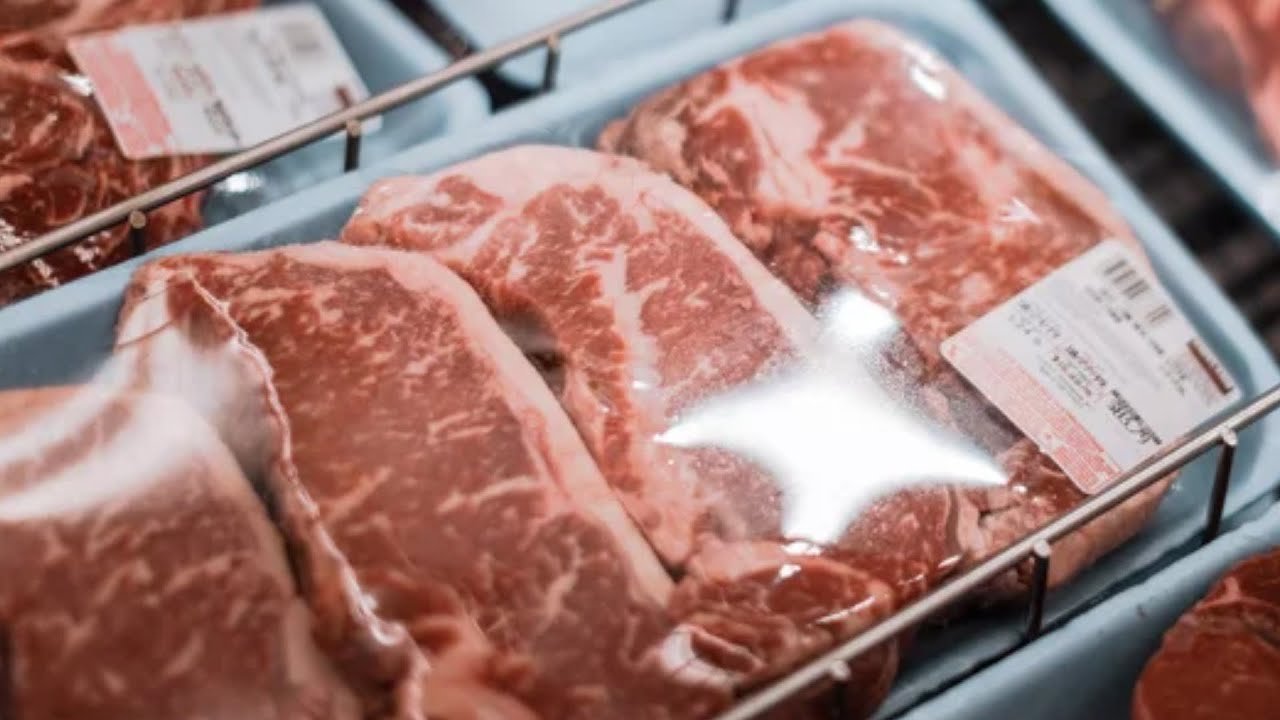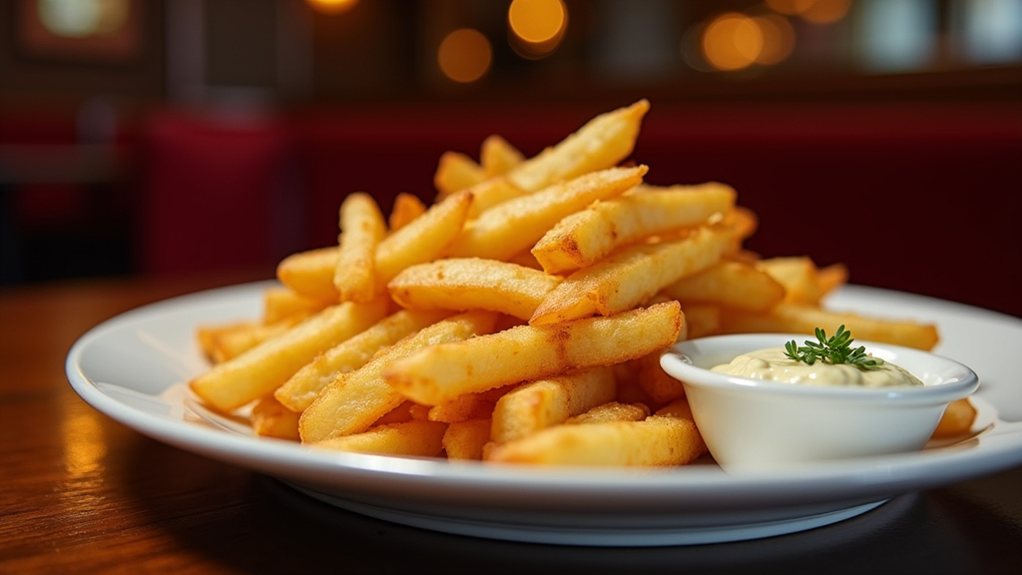Discarded onion peels can be creatively utilized to enrich both flavor and nutrition in cooking. One option is to make homemade onion powder, which is versatile and free from additives. Onion skins can also be used to create flavorful stocks, imparting rich taste to soups and stews. Moreover, finely chopped onion peels can be sprinkled over roasted vegetables or mixed into marinades and dry rubs for an extra kick. By incorporating these peels into your dishes, you combat food waste and adopt sustainable cooking practices, promoting a healthier lifestyle. More innovative uses await exploration on this topic.
Benefits of Using Onion Skins
Onion skins enhance dishes and reduce food waste. These discarded layers of Allium cepa, often ignored, are packed with flavor and nutrients. When added to broths, onion peels enrich the taste, giving a robust aroma to soups and stews.
By incorporating onion peels, home cooks take part in combating food waste, a significant issue in modern society. This approach aligns with sustainable cooking practices, fostering a responsible way to prepare meals.
Onion skins are also abundant in antioxidants, vitamins, and minerals, boosting overall nutrition. Including these nutrient-rich peels in your recipes not only maximizes ingredient usage but also promotes a healthier lifestyle. By utilizing onion skins, individuals can create tasty, nutritious meals while positively impacting the environment. Thus, using onion peels is a straightforward method to elevate both flavor and sustainability in culinary endeavors.
Making Your Own Onion Powder
Creating onion powder from onion skins is an easy and fulfilling way to enhance your dishes while reducing waste. This method not only adds a robust flavor to meals but also supports eco-friendly practices.
To start, collect your used onion skins and rinse them well to eliminate any dirt. Ensure they are completely dry, as any moisture can affect the grinding process.
Set your oven to a low temperature of 150°F. Spread the onion skins evenly on a baking sheet and bake for about three hours. Alternatively, you can use a food dehydrator for a quicker drying process. When the skins are crispy, crush them into a fine powder using a spice grinder or mortar and pestle.
Store your homemade onion powder in an airtight container to maintain its flavor and freshness for up to one year. This technique allows you to craft a flavorful seasoning while giving you control over the ingredients in your kitchen. Add this versatile powder to your favorite dishes and enjoy the benefits of sustainable cooking.
Versatile Uses for Onion Powder
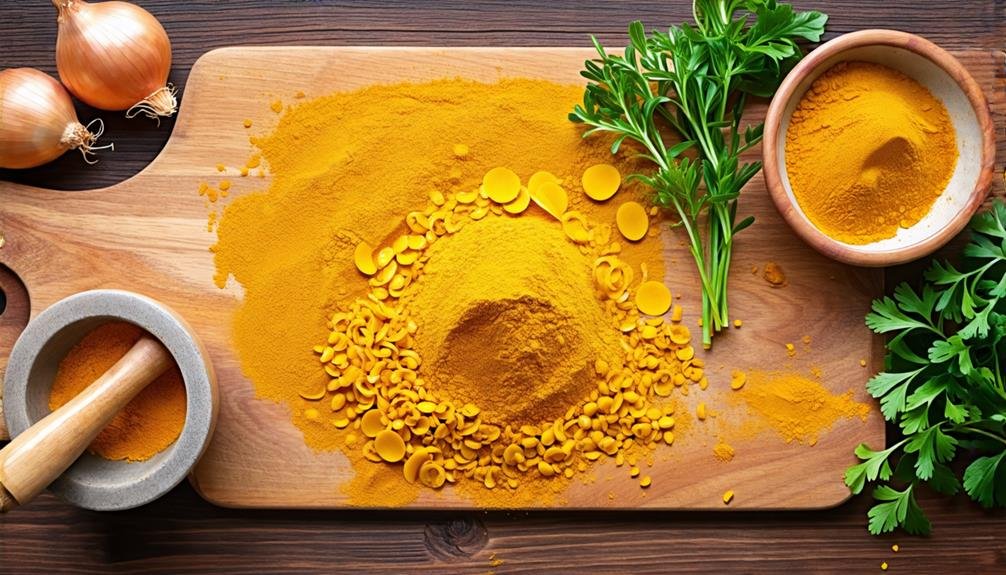
Homemade onion powder is a versatile seasoning that enhances a variety of dishes, from savory meals to snacks. This finely ground spice amplifies flavor and serves as a convenient substitute for fresh onions. With its extended shelf life, homemade onion powder is a key ingredient in any well-stocked pantry.
Consider using onion powder in various applications, such as:
- Sprinkling over roasted vegetables to elevate their natural sweetness.
- Mixing into marinades for meats, adding depth and sophistication to your culinary creations.
- Incorporating into dry rubs for grilled or smoked meats, enhancing their taste.
- Stirring into soups or stews to effortlessly boost their flavor.
The advantages of using homemade onion powder go beyond flavor enhancement; it is loaded with antioxidants and helps reduce dependence on processed seasonings. By embracing this simple yet powerful ingredient, home cooks can unleash their culinary creativity while supporting sustainable cooking practices. Whether used sparingly or generously, onion powder offers an easy path to flavor enhancement in everyday meals.
Creating Flavorful Stocks
Onion skins are an excellent ingredient for making flavorful stocks that enhance the taste of soups and sauces. Using these discarded peels not only adds depth of flavor but also supports sustainability by minimizing food waste. When simmered with other vegetable scraps, onion skins release natural sugars and essential oils, resulting in a rich stock that serves as a perfect base for various culinary dishes.
To make a delicious stock, gather onion skins along with vegetable remnants like carrot tops or celery leaves. Place these ingredients in a large pot, fill it with water, and let it simmer for at least an hour. The longer the stock simmers, the richer the flavors will become. Strain the mixture to remove solid bits, yielding a vibrant liquid that can be used right away or stored for future use.
Adding onion skins to your stock-making not only elevates your cooking but also encourages a thoughtful approach to ingredient use. By adopting this technique, you can enjoy more complex flavors while contributing to a sustainable cooking practice.
Enhancing Dishes With Onion Skins
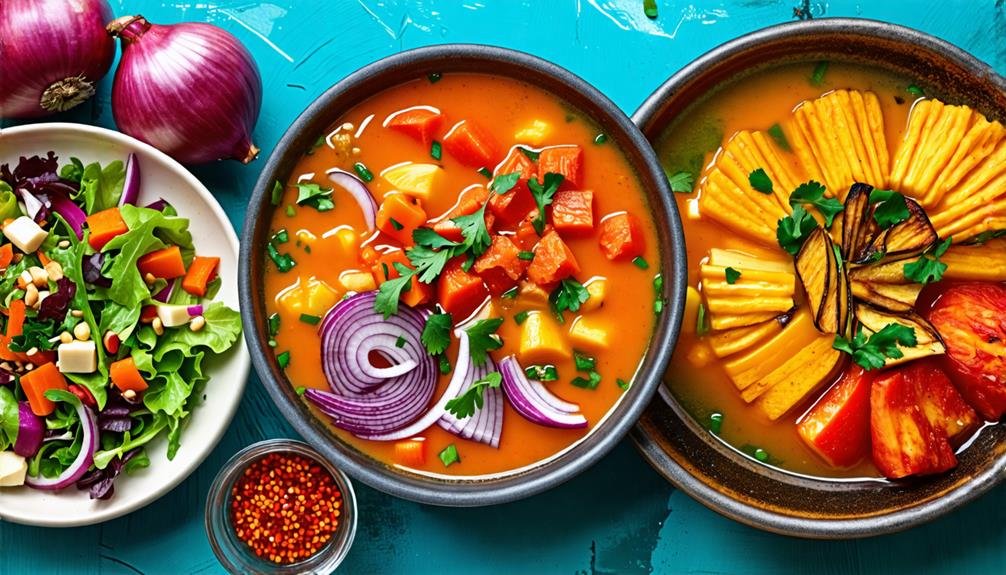
Onion skins are not just a valuable source for making flavorful stock but also serve as an excellent addition to compost, enriching the soil with nutrients. When incorporated into stock, they enrich the flavor profile of soups and sauces, providing a depth that improves the dish. By utilizing onion skins in these ways, cooks can reduce food waste while maximizing the benefits of this often-overlooked kitchen byproduct.
Flavorful Stock Creation
Using discarded onion skins in stock preparation enhances flavor and supports sustainability. Onion skins enrich soups and sauces, providing a savory depth to homemade stocks. By incorporating this often-overlooked ingredient, you elevate your culinary creations.
Consider the benefits of using onion skins in stock:
- Enhanced Taste: Onion peels add subtle sweetness and complexity.
- Aromatic Properties: The skins release fragrant compounds, enriching the aroma.
- Color Boost: Natural pigments in onion skins lend a warm hue to your stock.
- Cost-Effective: Utilizing scraps cuts down on the need for extra flavoring products.
Incorporating onion skins into your stock optimizes ingredients and promotes a resourceful cooking style that aligns with modern sustainability efforts.
Nutrient-Rich Compost Addition
Onion skins enhance compost quality. They enrich organic matter with nitrogen, phosphorus, and potassium, vital for soil vitality and plant development. This eco-friendly practice minimizes food waste while nurturing gardens.
To create rich compost, mix onion skins with vegetable scraps, coffee grounds, and yard debris. The cellulose in onion skins improves air circulation, promoting efficient breakdown. Additionally, their natural antibacterial traits help reduce harmful organisms, ensuring a safer compost for your garden.
Integrating onion skins into your composting routine elevates soil health and supports a zero-waste approach in your cooking. By converting discarded materials into a beneficial resource, you embrace sustainable culinary and gardening practices, contributing to a greener lifestyle.
Health Benefits of Homemade Powder
Homemade onion powder is a nutritious and natural seasoning option that stands out from commercial products like McCormick's onion powder, which often contain preservatives and additives. By utilizing onion skins, you create a flavorful ingredient while reaping substantial health benefits. Adding homemade onion powder to your culinary creations not only enhances taste but also boosts your nutritional profile.
- Homemade onion powder is packed with antioxidants that help reduce oxidative stress.
- It supplies essential vitamins and minerals, fostering overall health.
- This seasoning supports immune health, playing a role in preventing illness.
- It possesses anti-inflammatory properties, potentially lowering chronic inflammation.
The adaptability of homemade onion powder makes it an excellent addition to various recipes, including broths and marinades. By preparing your own seasoning, you avoid synthetic ingredients, leading to a purer, healthier alternative. Embracing homemade onion powder allows you to pursue a healthier lifestyle while enjoying distinct flavor experiences in your cooking. Making this straightforward seasoning is a proactive measure towards enhancing your health and appreciating the authentic taste of your meals.
Eco-Friendly Cooking Practices
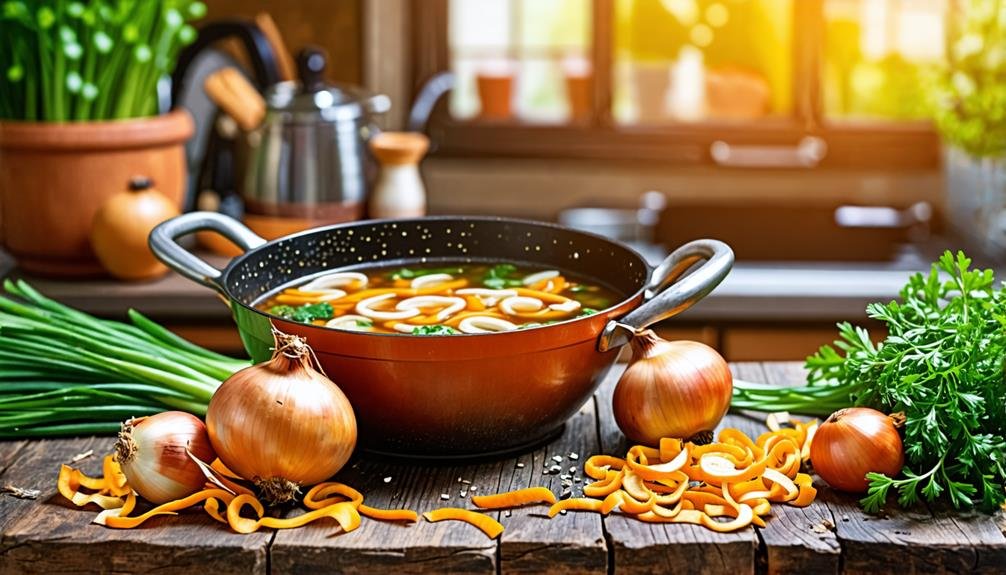
Adopting eco-friendly cooking practices minimizes environmental impact and promotes sustainability in the kitchen. One effective method involves using discarded onion peels, transforming waste into valuable ingredients. By adding onion skins to homemade stocks, cooks enrich flavors and extract nutrients that would otherwise be lost. This practice reduces food waste and encourages using every part of an ingredient, fostering a conscientious cooking approach.
Additionally, making homemade onion powder from these discarded skins allows for greater control over meal ingredients. Unlike commercial options, homemade seasoning is free from additives and preservatives, ensuring a healthier choice. The rich antioxidants found in onion powder positively contribute to overall well-being.
Furthermore, composting onion peels enriches soil and promotes a circular food system. By embracing these eco-friendly practices, individuals actively reduce their carbon footprint while enjoying flavorful and nutritious dishes. Ultimately, integrating these techniques into daily cooking empowers individuals to make informed choices that support sustainability and environmental stewardship.




